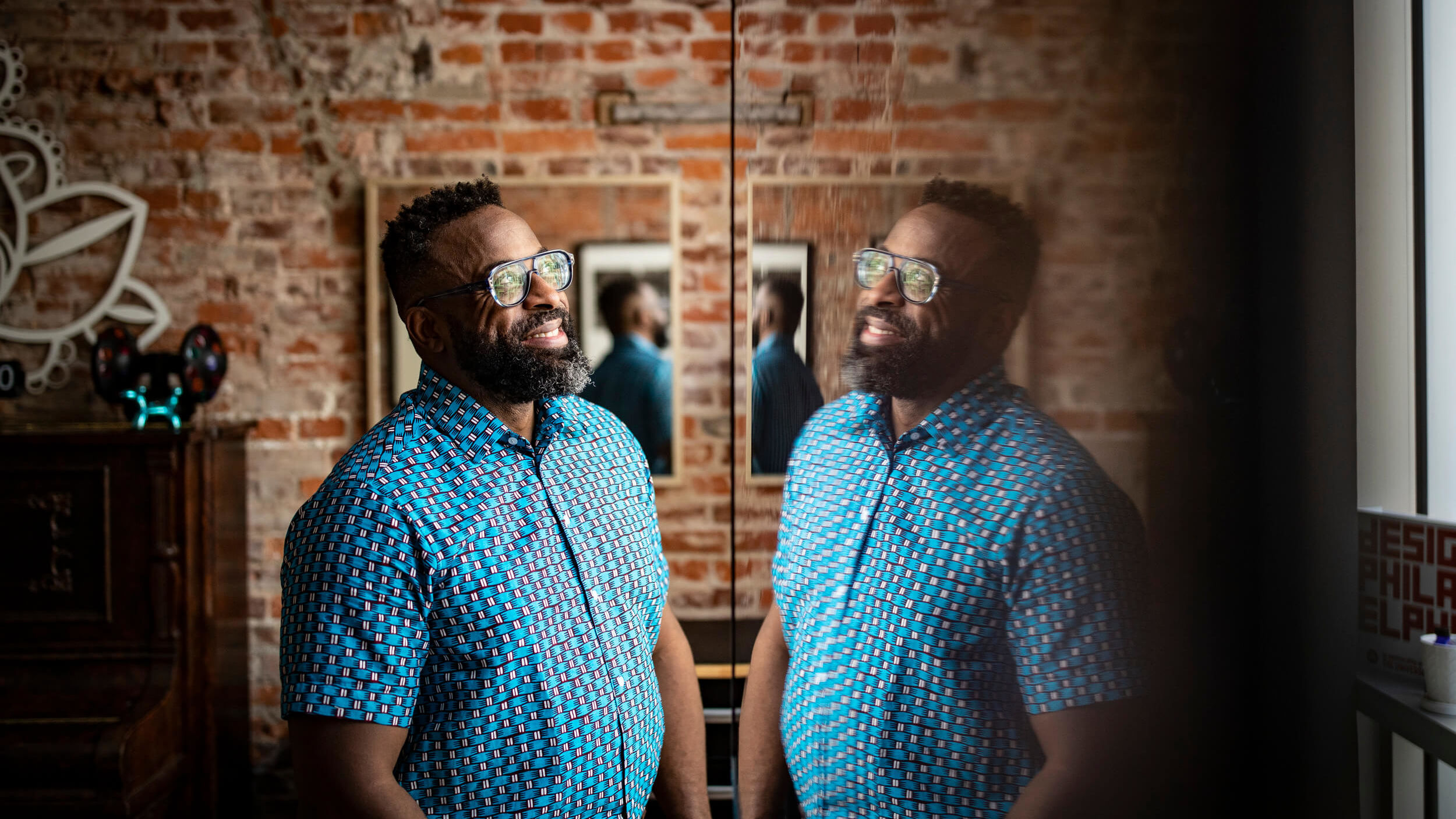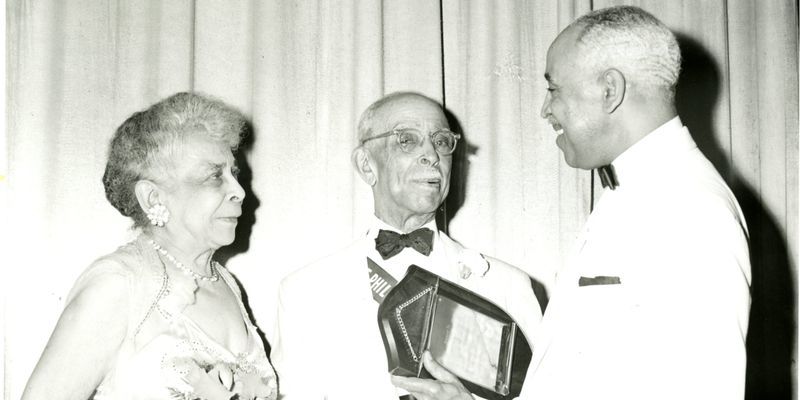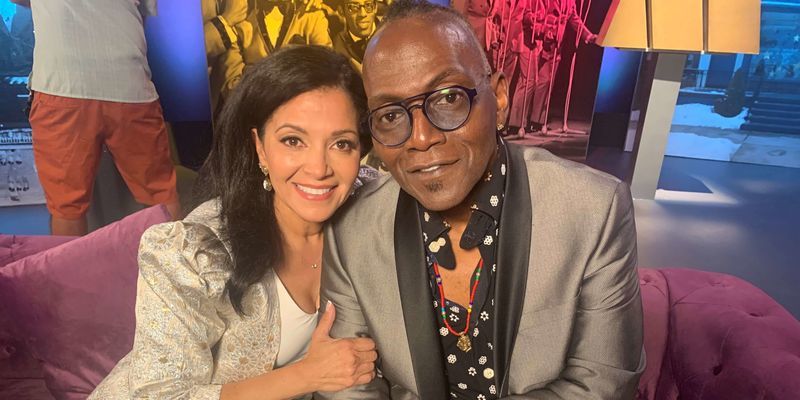Marc Coleman is not your typical CEO
His company prioritizes diversity, empathy and adaptability.

Philly native Marc Coleman, a former student at Tyler School of Art and Architecture, took a nonlinear path to his current position as founder, president and CEO of The Tactile Group, a software development company that employs 25 people who come from a range of backgrounds, locations and experiences.
On paper, Coleman’s success story seems intimidating. Without inherited wealth, he created a thriving business that continues to grow and diversify—even during the pandemic. He is an active member in the Philadelphia African-American Chamber of Commerce (AACC), the Independence Business Alliance (IBA), and serves as the Chair of the Diversity, Equity, and Inclusion committee at the Chamber of Commerce of Greater Philadelphia. The Tactile Group’s clients include large government contracts, universities and smaller nonprofit organizations. They recently secured an extensive contract with the Philadelphia Airport.
But Coleman is approachable and easy to talk to. He clearly values passion and loyalty, so much so that The Tactile Group states this as part of the company’s driving philosophy. “Designed to give a damn,” its website proclaims. “Good design comes from diverse perspectives and united effort.”
Coleman is the fourth generation in his family to go to college, and says his mother emphasized the importance of education from an early age. When Coleman left Princeton University and enrolled at Temple in 1994, he was drawn in by the top-notch architecture program. Temple was also inclusive and affordable, and he valued the practical and genuine nature of Temple students. “I like the scale of it … I like the realness of it. The people at Temple are very, very real.”
While corporate culture can sometimes emphasize competition and long hours, Coleman values diversity and empathy. He also allows for a flexibility that enables him to draw on talent from all over the world, and cultivates a community-oriented work culture despite the fact that The Tactile Group went fully remote in March 2020. Empathy is crucial to a functioning workplace, Coleman said. To put it simply: “Nobody wants to work with a brilliant [know-it-all].”
Coleman credits much of his success to his adaptability. When he was a student at Temple, he paid his bills by DJing, but when that work became less steady, he shifted to running a bed-and-breakfast (“Airbnb before there was Airbnb,” he said). Next he began to build the foundation for his design business. When the internet exploded, he moved from print design to web design, taking classes to improve his skill set.
His business seeks to capitalize on opportunities while adhering to a hiring strategy that privileges diversity of all kinds. Not only are they able to serve a vast array of clients on different types of projects, “People who have been trained differently and come from different parts of the country and just are different from each other are going to approach problems from a different perspective, and that makes our whole design, development and collaboration process a better process.”
In addition to hiring inclusively, Coleman also mentors young people going into business from diverse backgrounds. “Through the IBA I’ve had the privilege of sponsoring several people of color, including a trans woman of color who I keep in contact with on a regular basis,” he said. “One of my mentees was sitting on a panel, and someone said something so uninformed, something bordering on incendiary, something that might have caused me to shut down, yet she maintained her composure. Then she said, ‘I’m gonna challenge you on that.’” Coleman loved that she kept her cool but didn’t back down, an essential skill in business. “I thought: ‘I’m going to use that all the time.’”
—Sonia Belasco


